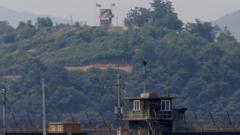Amid Western restrictions, Russian channels like RT and Sputnik have strategically increased their presence and influence in Africa, Latin America, and the Middle East, seeking to reshape perceptions and counter Western narratives.**
The Rise of Russian Media Influence in the Global South**

The Rise of Russian Media Influence in the Global South**
Russian state-backed media is expanding its reach in regions outside the West, posing challenges to established narratives.**
In an age of shifting global power dynamics, Russian state-backed media outlets such as RT and Sputnik are making significant inroads into regions outside the West, including Africa, Latin America, and the Middle East. This expansion comes amidst widespread sanctions and bans imposed on these channels by the US, UK, Canada, and the EU, primarily due to their role in spreading disinformation regarding the Ukraine crisis.
A notable case involves Telecanal, a television network in Chile, which reportedly transferred its signal to RT without prior announcements, shocking viewers like Javier Gallardo who were confronted with unfamiliar war coverage. Russian media's growth correlates with significant declines in Western media presence in these regions, prompting experts to describe Russia's strategy as akin to "water seeping through cracks in cement."
Following Russia's invasion of Ukraine, the Western response has led to sanctions against RT executives and sweeping restrictions on their broadcasts. Despite these setbacks, RT has been thriving internationally; it has recently launched training programs for journalists in Africa and opened new bureaux in various regions, including Algeria and Serbia.
Experts note that many audiences in these regions don't necessarily view RT as a purveyor of disinformation, but rather as a legitimate news source. With tailored content aimed at specific cultural sentiments, RT's influence continues to grow, presenting itself as a counter-narrative to Western media.
This strategy is especially pronounced in Africa, where there's a historical legacy of anti-colonial sentiment that aligns with Russia's narrative. The Kremlin's outreach efforts are often framed as supportive of liberation movements and anti-imperialism, creating fertile ground for its propaganda.
The impact of this media landscape, however, is difficult to measure, and while RT claims a hefty viewership, experts provide a more nuanced understanding of their reach, suggesting that many viewers may not fully grasp the inherent biases in RT's coverage. The Kremlin's media propaganda not only challenges the narratives imposed by Western outlets but also seeks to embed itself within the socio-political fabric of the Global South, portraying Russia as a victim of Western hegemony and thus reshaping global perceptions in its favor.
As RT broadens its reach—offering programming in local languages and focusing on regional issues—there's growing concern regarding its potential to normalize authoritarian narratives and undermine democratic values. In conclusion, while Russia is slowly gaining ground in global media influence, the West faces an urgent need to reassess its approach to international broadcasting and support independent journalism to combat this rising tide of disinformation.



















